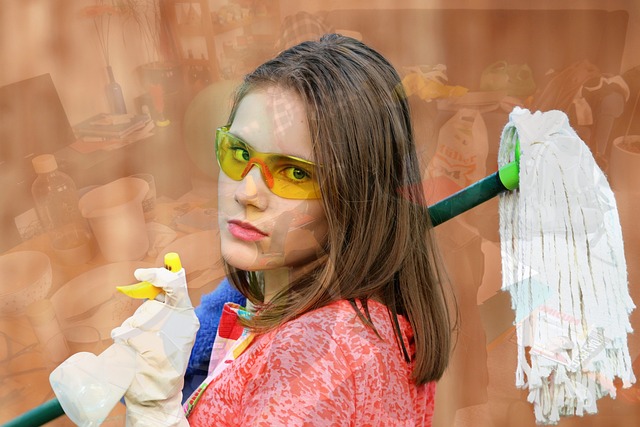Commercial insect removal is a specialized service crucial for maintaining bug-free environments in offices, retail spaces, and industrial facilities. It involves assessment, tailored treatments, regular inspections, and maintenance to prevent and eliminate infestations like ants, termites, rodents, bed bugs, and flies. Engaging professionals ensures safe, hygienic spaces, boosts business reputation, and prevents structural damage. Early signs of infestation include insect sightings or waste products. Effective control uses methods like Integrated Pest Management (IPM), physical controls, chemical applications, and regular inspections. Proactive measures include sealing entry points and maintaining cleanliness. Post-treatment, consistent cleaning routines and preventive measures are vital. Adhering to legal considerations and industry regulations is paramount. Choosing a reputable company with specialized, successful insect control services ensures long-term solutions.
Commercial insect removal is a critical aspect of maintaining a healthy and productive business environment. This comprehensive guide delves into the essentials of professional insect control, highlighting the common pests that require expert management. We explore the benefits of engaging insect control services, signs indicating your business needs pest management, and various treatment methods employed in commercial settings. Additionally, we provide post-treatment care tips, discuss legal considerations, and offer insights on choosing the right insect control company for effective, safe, and compliant solutions.
Understanding Commercial Insect Removal: The Basics

Commercial insect removal is a specialized service that involves the systematic and effective management of insects in commercial settings, such as office buildings, retail spaces, and industrial facilities. It’s a crucial aspect of pest control that goes beyond simple prevention, focusing on identifying and eliminating existing insect infestations while implementing strategies to deter future invasions.
The process typically includes an initial assessment by trained professionals who use advanced techniques to pinpoint the types and extent of insects present. This is followed by tailored treatments using eco-friendly or industry-approved methods, depending on the severity of the infestation and the type of insects. Regular inspections and ongoing maintenance are also key components, as they help maintain a bug-free environment and prevent reinfestation. Engaging insect control services ensures that businesses can operate smoothly, protect their reputation, and create a safe, hygienic space for employees and customers alike.
Common Insects That Require Professional Control
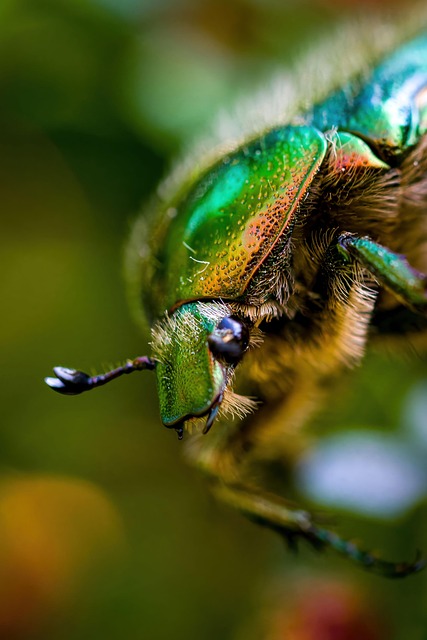
In many cases, professional insect control services are necessary for effective management and eradication of common insects that can infiltrate commercial spaces. Pests such as ants, termites, rodents, bed bugs, and various types of flies are notorious for infesting offices, warehouses, restaurants, and retail stores. These insects not only cause structural damage but also pose significant health risks to employees and customers through contamination and allergen transmission.
For instance, ants and termites can infiltrate buildings through the tiniest cracks, causing substantial structural damage over time. Rodents, including mice and rats, are carriers of diseases and parasites, making their presence in commercial areas a serious concern. Bed bugs, once introduced, can quickly spread throughout a building, leading to discomfort and distress for occupants. Professional insect control services employ specialized treatments, inspections, and preventive measures tailored to each unique situation, ensuring these pests are effectively controlled and eliminated.
Benefits of Engaging Insect Control Services

Engaging insect control services offers a multitude of benefits for businesses and property owners. Professional pest controllers have the expertise and tools to identify and eliminate even the most persistent insect infestations, ensuring a safe and hygienic environment for employees and customers alike. They employ eco-friendly methods and treatments that are both effective and safe, preventing any potential harm to people or pets while keeping pests at bay.
Moreover, regular insect control services can significantly enhance the reputation of your business. A pest-free establishment projects professionalism and care, boosting customer satisfaction and loyalty. By addressing insect issues promptly, these services also mitigate potential damage to structures and belongings, saving you money in long-term maintenance costs.
Identifying Signs Your Business Needs Pest Management
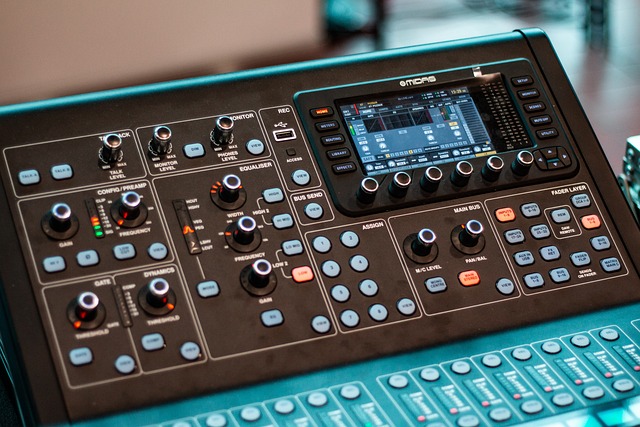
Many business owners often overlook the signs that indicate their establishment needs professional insect control services. However, pest infestations can quickly spiral out of control, leading to significant damage and discomfort for customers and employees alike. One of the first noticeable indicators is the presence of visible insects or their waste products around your premises. This includes sightings of ants, flies, spiders, or even more alarming pests like rodents. Over time, these pests leave behind traces such as droppings, webs, or egg sacs, which serve as clear signs that professional intervention is required.
Moreover, if you start noticing a decline in customer satisfaction and sales, it could be linked to pest-related issues. Customers appreciate a clean and safe environment, and an untidy, pest-infested space can deter them from returning. Additionally, insects can cause structural damage over time by chewing through wood, fabric, or other materials, leading to costly repairs. Recognizing these signs early on is crucial for businesses, as prompt action ensures effective insect control and prevents further complications.
Types of Insect Control Methods Used in Commercial Settings
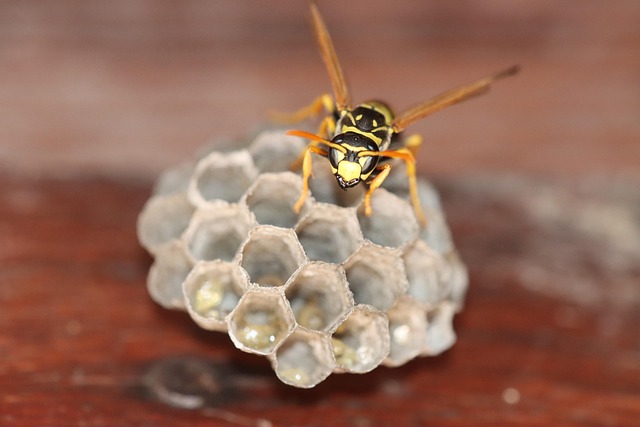
In commercial settings, effective insect control is paramount for maintaining a healthy and productive environment. Professional insect control services employ a variety of methods tailored to specific pest issues. These include integrated pest management (IPM), which combines biological, cultural, and chemical strategies for sustainable pest suppression.
Physical controls like traps and baits are commonly used to intercept and reduce insect populations. Chemical treatments, when necessary, are applied with precision and minimal impact on the environment, focusing on targeted areas and specific pests. Regular inspections and proactive measures such as sealing entry points and maintaining sanitation play a crucial role in preventing insect infestations, making them essential components of any comprehensive insect control service.
Preparing Your Business for an Insect Control Treatment

Before engaging insect control services, preparing your business is essential for a successful and effective treatment. This involves identifying potential entry points where insects might be entering your premises, such as cracks, gaps in windows or doors, and poorly sealed seals. Regularly cleaning and maintaining your business space, especially areas prone to pest infestation, is crucial. Remove any sources of food, water, or shelter that may attract insects, including recycling materials, standing water, and organic waste.
Additionally, inventory management plays a vital role. Store items in airtight containers and ensure proper labeling to prevent contamination from insect remnants. Educate your staff about the importance of pest prevention and assign roles in maintaining hygiene standards. Regular inspections are also key; conduct routine checks to identify early signs of infestation, enabling swift action before the issue escalates. By implementing these measures, you create an inhospitable environment for insects, setting the stage for more efficient insect control services.
Post-Treatment Care and Maintenance Tips

After an initial insect control treatment, maintaining a pest-free environment requires consistent care and vigilance. Regular cleaning routines are essential to prevent any returning insects; focus on eliminating their food sources and hiding places. Vacuum frequently, especially in corners and along baseboards, and wipe down surfaces to remove any debris or sticky residues that may attract pests.
Consider implementing preventive measures like sealing entry points, repairing cracks, and ensuring proper ventilation to deter future infestations. Additionally, maintaining a tidy outdoor space by regularly trimming vegetation, clearing debris, and securing trash cans tightly can significantly reduce the risk of re-infestation. Remember, ongoing vigilance and prompt action are key; if you notice any signs of returning insects, contact professional insect control services for timely assistance.
Legal Considerations and Industry Regulations for Insect Removal
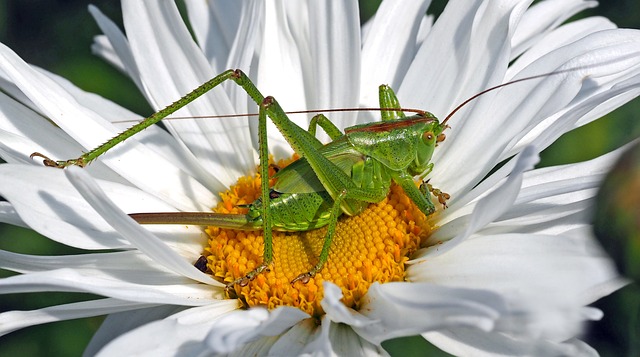
When offering commercial insect removal services, it’s crucial to understand and adhere to a web of legal considerations and industry regulations. These guidelines are in place to ensure safety for both business operations and the environment, as well as to maintain ethical practices within the industry. Each region has its own set of laws governing pest control, focusing on product registration, labeling, and application methods to prevent unauthorized use or environmental harm caused by insecticides.
Business owners seeking insect control services must be aware of licensing requirements for their staff, proper disposal protocols for chemical waste, and restrictions on the types of pesticides that can be used in commercial settings. Non-compliance not only carries legal penalties but also poses risks to public health and safety, ultimately undermining the effectiveness of insect removal efforts. Staying informed about these regulations is essential for maintaining a reputable business and delivering quality services.
Choosing the Right Commercial Insect Removal Company
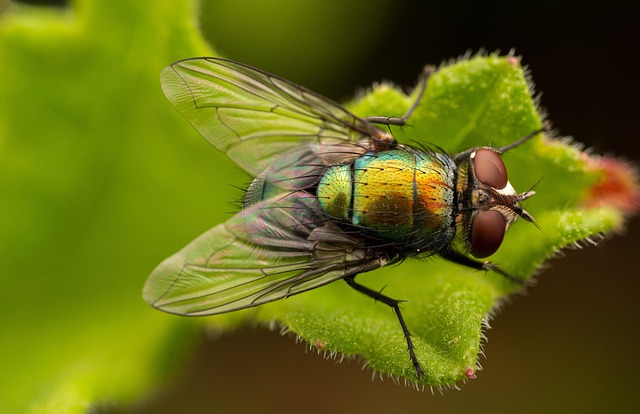
When selecting a commercial insect removal company, thorough research is key. Look for businesses specializing in insect control services with a proven track record and licensed professionals who adhere to industry standards. Reading client reviews and asking for references can provide insights into their effectiveness and customer satisfaction levels.
Consider companies that offer tailored solutions, utilizing modern equipment and eco-friendly methods whenever possible. Ensure they have the resources to handle your specific insect issues, whether it’s an infestation of ants, termites, or other pests. A reputable company will conduct thorough inspections, identify the root causes, and provide long-term solutions for effective insect control services.
